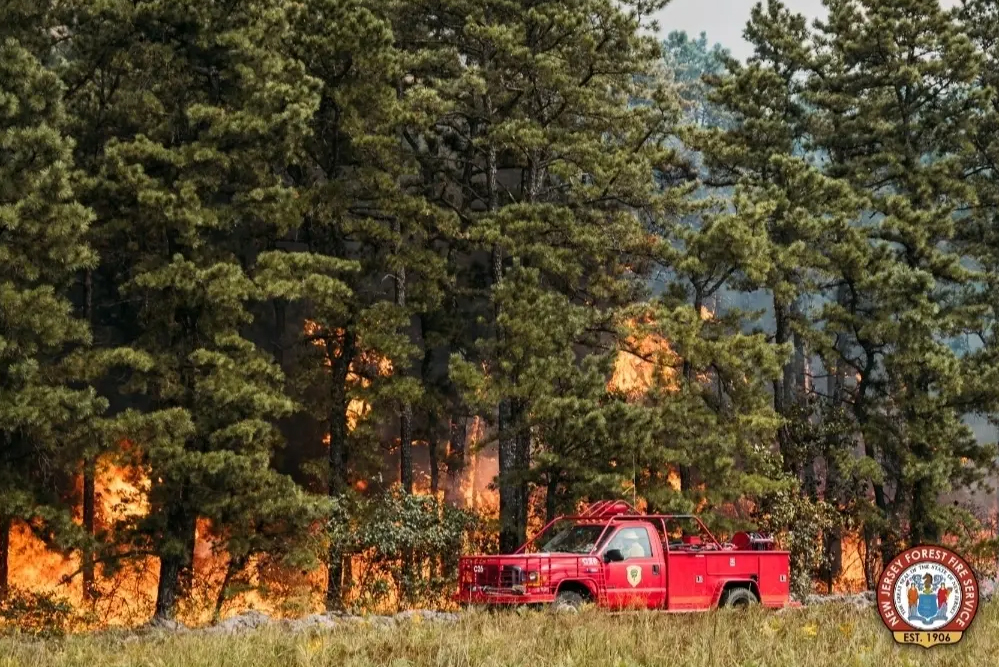CHERRY HILL, NJ — Although a significant wildfire that swept through Wharton State Forest in South Jersey has been largely contained, the aftermath of the blaze has left a distinct odor lingering in the air of Cherry Hill.

Cherry Hill residents have noticed a “strong odor” in the air over the past few days, a direct result of the recent brush fire that ravaged Wharton State Forest, according to statements from the local fire department.
Despite the pervasive scent, officials assure Cherry Hill residents that there’s no need for concern. The Cherry Hill Fire Department clarified on Thursday that the change in air quality was due to higher humidity levels and shifting winds, causing the smoke smell to travel to surrounding areas.
The wildfire, known as the Dragway Wildfire, was initially detected on a Sunday afternoon, with its flames spreading near Jackson Road in Wharton State Forest and the shuttered Atco Dragway in Waterford Township. The fire expanded to cover an area of 1,700 acres, its containment perimeter stretching to Medford and Shamong in Burlington County.
By 6 p.m. on Tuesday, firefighting teams managed to confine 95 percent of the wildfire. Fortunately, no injuries were reported, and there was no immediate threat to structures, as confirmed by the New Jersey Forest Fire Service.
Despite the containment efforts, traces of smoke are expected to linger for some time as firefighters continue their mop-up operations. Experts from the state forest fire service advise that smoke may persist due to the gradual extinguishing of remaining hotspots.
Wildfires have been an ongoing concern in South Jersey in recent months, with multiple significant fires occurring in the region’s woodlands since the spring. Furthermore, smoke from wildfires in eastern Canada had also impacted the air quality in South Jersey earlier this year.
Officials in the Garden State have cautioned residents about the heightened risk of forest fires in 2023. The absence of substantial snowfall during the winter in South Jersey has prevented the natural compaction of pine needles and leaves, leading to the rapid drying of these materials as ground fuel. This dryness, coupled with windy conditions, increases the potential for wildfires.
While the majority of wildfires in the state are attributed to human actions, accidents, or arson, changing climate patterns may result in an extended peak wildfire season. New Jersey’s Environmental Protection Commissioner, Shawn M. LaTourette, emphasized the importance of wildfire prevention, not only for immediate safety but also as a measure to mitigate carbon emissions contributing to climate change.
Concurrently, a report from World Weather Attribution indicates that climate change has intensified Quebec’s fire season by 50 percent through the end of July, further underlining the far-reaching implications of changing weather patterns.



